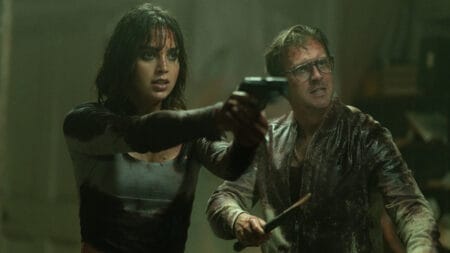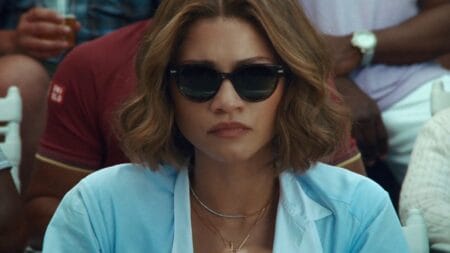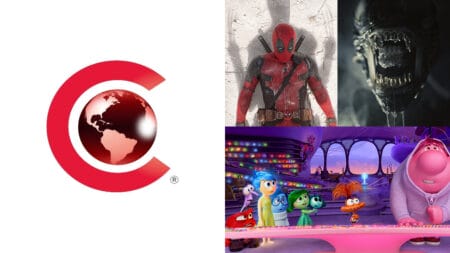Most filmgoers’ earliest exposure to the work of Wes Ball was his film adaption of James Dashner’s The Maze Runner in 2014. Its high-energy and peculiar action endeared itself to fans of the original books and earned a lasting soft spot for young audiences. An outspoken character, Ball’s passion for filmmaking radiates clearly in how he holds himself across many platforms; it’s no wonder that he and his Maze Runner films boast avid fan bases.
Thanks to his fortunate beginning and natural talent as a storyteller, Ball has had the opportunity to work for a number of major studios – more recently as the director for the now-canceled Mouse Guard film at Fox, which was caught in the crossfire during the Disney merger. He is now making headlines for leading a new Planet of the Apes project, once again proving to be a significant creative presence in the studio landscape. In addition, he has teamed up with Blueprint Pictures to bring Catherine Webb’s The First Fifteen Lives of Harry August to the screen, adding yet another novel adaptation to his filmography.
From his award-winning animated short Ruin to his upcoming Apes film, Ball’s career has been nothing short of impressive. Alongside the widespread anticipation for his future, we sat down with him to reflect on the past. It’s been 6 years since The Maze Runner trilogy kicked off, and to honor such a milestone we trace how this young filmmaker found himself at the helm of an exciting blockbuster series and how those films would go on to shape his career.

The most basic yet earnest question that plagues all filmmakers and film fans,”What brought you into the film industry in the first place?” was met with a telling smile in his voice.
WB: Being from super small town in Florida, I didn’t grow up going to the movie theater because it was like an hour away. But I had a satellite dish, a lot of channels, and a cabinet full of every movie you could imagine that I’d saved off HBO, Showtime, or whatever. I watched those over and over for I don’t know how long, you know? Just all day while I played with LEGOs. I didn’t know that I wanted to make movies at first, but I knew I wanted to make things. For a while, I wanted to be a stunt man — I wanted to be a model maker or a special effects artist. It wasn’t until I found this documentary show on the Discovery Channel at the time called “Movie Magic”, that was basically a cool behind the scenes weekly show. That was where I was introduced to the concept of film school and specifically for me, the Florida State film school, which is where I ended up going. That’s where I realized, “Oh man, you can do this.” You could make stuff and have a career doing it!
Of course, The Maze Runner was a natural extension of his anecdote: “Once you got your career up and running, your first big break was The Maze Runner trilogy. How did you first decide to tackle that series and why?”
WB: Well, you know, when you’re out here for 10 years scratching and climbing to try to become a director, it’s a hard business to break into. When someone says “Hey, do you want to direct this thing?” you say, “Hell yeah!” There wasn’t a lot of, “hmm, let me contemplate this for a bit.”
There were other motives behind his decision, however.
WB: I grew up in a really small town in Florida and so a lot of time when I wasn’t watching movies, I spent out in the woods, building forts and camping and just kind of fake surviving out there. That was what immediately connected to me on Maze Runner – basically the Lord of the Flies aspect of it all. This group of kids, thrown into this unique circumstance where they have to survive and rely on each other to survive. And then you had all the cool, fun genre parts like monsters, giant mazes, and all that crazy stuff. But it was the survival aspect that I really connected to. That was my big pitch. I decided to focus more on what the book was doing and really lean into that society of boys concept. It was great, it was such an incredibly lucky break. It’s ridiculous, frankly, that a studio head, Emma Watts of Fox at the time, saw my little animated short, which was really all I had done and said, “Here is $24 million, go make a movie.” It’s just nuts. Ultimately, we ended up being somewhere around a $34 million movie that grossed like $348 million dollars. So it was a huge success for the studio and it launched me towards becoming what I wanted to be, a director.
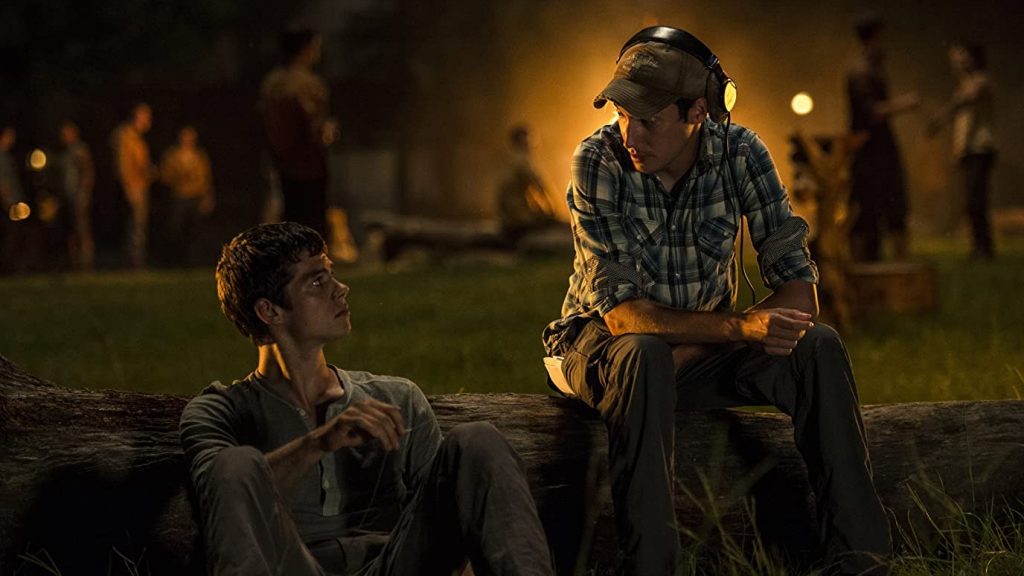
One of the biggest challenges with spearheading a young adult novel is the stigma surrounding its genre. In answering “How did you set yourself apart from those other films and make The Maze Runner series distinct from other YA franchises?,” Ball seemed hesitant to even consider the series similar to other YA products at the time.
WB: That didn’t waste our time with that kind of stigma, there always being love triangles and that it’s high school mixed with genre, fantasy or Sci-Fi. We had all those elements, but we never saw ourselves as that. We were just a simple adventure, it was Lord of the Flies meets Lost. That’s the way we portrayed it. We kind of left out the romance triangle stuff and other angsty coming-of-age aspects. I was just trying to make a cool, fun movie with the resources that we had. I never liked the YA thing because I look at Goonies like… would Goonies be considered YA today? I don’t know, is Harry Potter YA? There’s young people in them, but I’m just making a cool adventure, genre movie, you know?
He found much-needed freedom from the YA format by embracing the adventure genre undertones of the original books. As a new director, he reflected on these being his first big-budget films.
WB: As a director, it’s a blessing. My first three movies are a trilogy, each distinctly different from the previous one – which is another blessing as a franchise. I like to say that The Maze Runner movies were basically really good practice and now I get to go out and make other movies.
One of those other movies was Mouse Guard, a huge animated CGI film that sadly never went into production. His response to “What was it like to pivot from live-action on The Maze Runner to motion capture CGI for Mouse Guard?” called back to his work on Ruin and his education in film school.
WB: I’ve developed this kind of unique hybrid of skillsets, to be able to think about animation in terms of live-action, which in particular with Ruin gives it a very live-action feel despite it being full CG. So it was an easy jump from Maze Runner to Mouse Guard because we were going to make it like a live-action movie, but it was going to be done completely cutting edge with WETA and the team from Avatar (2009).
With a twinge of sadness, he expressed hope that we might one day get to see Mouse Guard completed.
WB: I’ve never worked on anything that was so endless in terms of its potential and it’s fuel for imagination: a world of medieval fighting mice that is shot exclusively from their point of view. The point of view, creativity and the vision of the world that they inhabit is just endless, and it’s a shame that it didn’t get made when we were like two weeks away from starting production.
With Mouse Guard on the shelf, Ball put his focus on new endeavors. He was particularly excited to discuss his upcoming project when asked “Can you tell us a little bit about how you came to be involved with The First Fifteen Lives of Harry August?” The original book by Claire North is about a man who discovers he can live his life over and over again.
WB: It’s a fantastically well written, really creative book. I had read it while I was making the second Maze Runner movie, and I thought “Who has this book? I have to figure it out. This could be an incredible movie.” And so I found The Blueprint guys owned the rights and were working on a script. The Blueprint guys, Peter Czernin and the rest of his gang, did In Bruges, Three Billboards, and the latest one, Emma. So they’re known for these really well done, high caliber indie darlings. I approached them and said, “Hey, can I jump on board this thing? Because I love this story.” One, it’s a high concept, which is cool for me. It’s a little bit of world creation involved with the roles and unique, secret fantasy of the book. Then two, which is a little bit different for me, it would let me exercise some different muscles on a directorial level. It’s fun doing these big franchise action/ adventure projects, but I am ultimately a simple storyteller. I like the craft of filmmaking to tell stories. So this felt like a really great platform to lean into that challenge of a movie that doesn’t rely unnecessarily on plot and spectacle. This is pretty much a character drama set against a pretty creative and unique world, and that was just incredibly enticing.
Ball also mentioned that he was discussing collaboration on the project with people at Amblin Entertainment during production of Mouse Guard.
WB: So we went about basically figuring out how to get Blueprint, Amblin, and myself to come together and make what will hopefully be a responsibly priced but really well-made movie. We’re all super freaking excited about it. We’re in the process of doing another draft of the script because it is a tricky project to get working. For anyone who’s read the book, this story as a movie – if you miss by an inch, you miss by a mile. You have to get it just right. So we’re spending a lot of time on the script and making sure that it is just right, and frankly we have the time to do it. So that’s the status of that, but who knows what will happen or when I can actually make it, whether it’s before or after Apes, but I’m just so thrilled to be involved with it because it’s really one of my favorite books that I’ve read in a long time. I’m really looking forward to bringing it to the screen.
His passion was clear and enthusiasm infectious. He asked if I had read the book yet, to which I replied that I hadn’t.
WB: It’s crazy. Because of this kind of multiple lifetime thing, it’s got the concepts of time travel without the paradoxes of time travel because he’s living the same way. The world’s basically happened as if you know the future, but you can make choices to affect that future. That concept alone – we all know what déjà vu feels like and that’s what this story is kind of about. These characters discover slowly that wait a minute, I have been here before, I’ve lived this life before, I know what’s going to happen, and what does that do? It’s just a great concept for a movie. It’s like a Twilight Zone episode and, fortunately, it’s got this really great heart to it – this love triangle, essentially, between Harry August, the love of his life, and the brother he always wanted. It’s really a drama between these three characters. I won’t give it all away, but man it’s fantastic. I really love it.
With such gusto and vigor in describing the synopsis, he had more to say about the film. “Did you have any creative input with how the script or the story is going to be told, or are you mostly staying in a directorial role?“
WB: Good question. For me, I only know to have input. So I can’t imagine that there can be directors out there that don’t have any input. Maybe there are, but the way I work is we get in, we get our hands dirty, we talk about things, we pull it apart. Sometimes they get frustrated with me because I like to break things and then build it back up – it tells you something about the project that you’re working on. That’s why I worked so much with T.S Nowlin, my buddy who I went to film school with, who humors me on how I like to work, which is to really get under the hood and understand how these things tick. For me, it’s part of the process all the way.
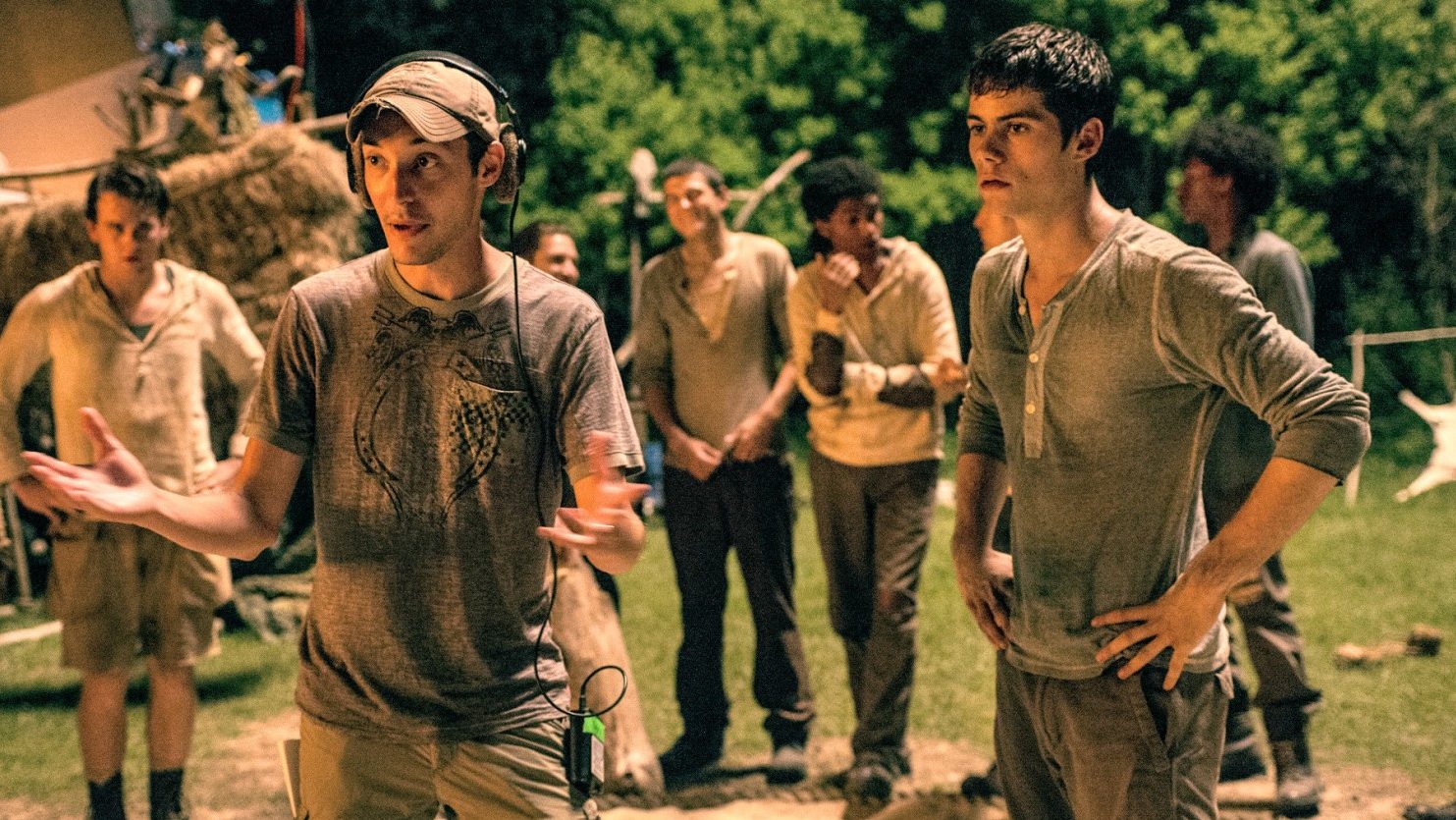

He went on to describe how he usually has a hand in all aspects of filmmaking, from marketing posters to title treatments. Film is a collaborative medium, and Ball clearly embraces the teamwork inherent to the industry while also staying true to his individual voice as a creative.
WB: How do you get hundreds of people, hundreds of incredible craftsmen in their different fields to make a singular vision that can be enjoyed by audiences all over the world? I mean, if everyone really knew how something is made, they would be amazed that anything comes out the other end that makes any sense whatsoever. For me, you really have to drink it in and understand it so that on-set, you can quickly tell that person what they need to know so that they can go off and make choices on your behalf. Choices that ultimately show up on the screen that everyone’s watching at home or in the theaters. Making movies is both an incredible art form and a business venture. It brings in like no other art form, all the different kinds of disciplines from music, composition, painting, lighting, photography, and performance to make one unique experience. I guess what I’m saying is, despite all the doom and gloom predictions of the death of the movie industry, I still have a lot of hope and believe that movies will always be a part of our art and culture.
With the ongoing pandemic, many don’t share that level of optimism. Even though movies are still filtering through the release system, “A lot of movies have been pushed from theatrical to personal video.“
WB: That’s a change that was on its way anyway, to be honest about it, like it or not. I mean, I love the theater experience, but not every movie needs to be in the theater, frankly. Streaming obviously accelerated that whole kind of system, and I think it’s perfectly valid that we can have great experiences at home. It’s a different experience to me, a streaming movie or series versus a theater experience. I think a series that you watch at home, which I won’t call it TV, but we can call it TV I guess – it’s an intimate experience, right? You’re inviting a show, a movie, a character into your home. You’re on your couch in your pajamas or whatever. Most of the time you’re probably half-watching the thing that’s on TV while also flipping around the phone and checking Twitter or whatever. That’s the kind of the experience at home, which is fine, but there’s also the experience of the movie theater, which is where you devote two hours of your time, focus, and attention to the work of art on the screen. Now that’s just… a different thing.
But for beginning directors, the theatrical market being reduced to blockbusters and tentpoles can feel like a major setback when it comes to making a mark in the industry.
WB: Some of those guys out there won’t know what it’s like to have your first movie up on the screen in a theater, there’s nothing like it. And I feel bad for those people in this time we’re in right now; they’re not going to have that experience. So that sucks and my heart goes out to them, but we can have just as valid and rich kinds of experiences at home with our movies too. What I would say is to be hopeful but put an optimistic spin on it.


Honest and direct, he seems both resigned and acceptant to this route of distribution as a more prominent strategy going forward.
WB: It’s going to be this way for a while until there’s actually a legitimate vaccine. Who’s going to want to go to theaters, right? Who’s going to want to go and resume things as normal? I imagine a lot of young people will, maybe that could be a demographic that goes to the theaters and that’ll change that kind of thing. But I think most people with families and others they care about are just not going to want to risk it.
With the massive popularity of streaming shows in teenaged demographics, “It’s interesting that that younger demographic is also the group more inclined to online watching.“
WB: Exactly. So it’s going to be very interesting to me. This moment that we’re living in is going to change our world – not just our industry. We’re going to be in a different place after this, but my bet is that no matter what happens, we’ll still need to make great stories set in fantastic worlds that are emotional, exciting, and thrilling for people to enjoy. Our business and livelihoods will continue in whatever shape they take, but hopefully there will always be a need to tell people stories and give them an escape from their normal lives.
With the launch of HBO Max and countless new big releases from services like Netflix, there’s no end in sight for the future of streaming. Even though many larger films are being pushed back, “All these new streaming services have opened so many opportunities to create new, fresh content.“
WB: I think it’s really exciting! I have a couple things that I’m working on that would have never been made like two, three years ago. I have this animated thing that I want to do that is so freaking bizarre. It’s like an animated series that is one part John Hughes high school drama, one part Miyazaki fantasy, and then set in this plot engine of like Jaws or Tremors. It’s freaking bizarre man, but it’s so awesome. I’m kind of noodling on that in between my Apes duties and stuff, and this would never have the light of day without whatever’s happening right now in the industry. What can you do except be positive, lean into it, and just try to make the best of it? I mean, the movie industry was kind of born out of the Great Depression for crying out loud. It’s like movies were forged in fire! (laughs)
And as the interview came to a close, the topic returned to film fans and filmmakers: “To come full circle, is there any advice like to give our audience of film fans and filmmakers?”
WB: Watch stuff that you don’t think is your cup of tea. Give audience to projects that are going to need it in this world of all these multiple streamers and endless amounts of content. It would be nice to give these smaller projects a life that they’re not going to have on the normal kind of theater circuit. Then for filmmakers, I would say, now’s the time. Now is the time to lean in, think big, and make stuff. The world is going to need good stories in the next few years more than ever. So for those people that are itching to make something but find some reason to not sit down at a computer and start typing or sit down and start drawing up storyboards, go do it. Now’s the time to just go do it. Take that step and then that momentum will carry you forward. Go out there and make some cool stuff for us to all enjoy!
Once again, his contagious, spirited zest was too compelling to ignore.
WB: I can’t help it man. I’m excited! It’s a fun job to have and I feel pretty fortunate to have it. Hopefully it will continue on and this world doesn’t change too drastically, you know?
And that’s all we can do. As we have endured this new era of movie-watching, we have been forced to reevaluate the place of cinema in our lives. When things are tough, we still have the silver screen to turn towards, a world to which we can escape our own. As fans of film, we must remain optimistic and hopeful. There is still great art to be made, to be watched, and to be lived. Although perhaps not entirely familiar, the future is bright. And hopefully soon enough, we’ll have some new Wes Ball films to bide the time.


